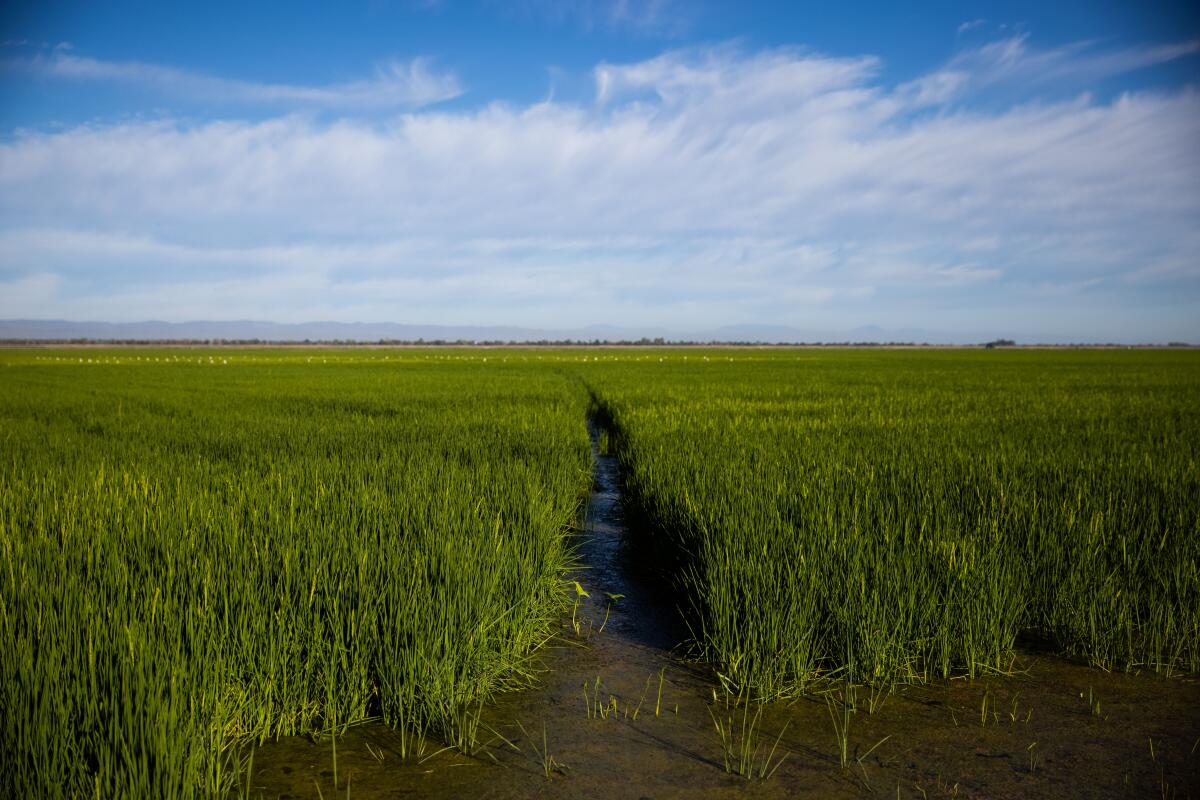Letters to the Editor: We grow rice in California? That’s unwise even when there isn’t a drought

- Share via
To the editor: I read your front-page article about how the third year of drought is impacting farmers. With diminished water flowing from rivers, farmers have increasingly resorted to groundwater pumping. Your article neglects to mention the harm this pumping causes.
The article also mentions the impact lower crop yields has on farmworkers. By definition migrant farmworkers are migrants, moving on to the next agribusiness as seasons or conditions change.
But the one question your article fails to raise and consequently doesn’t answer is this: Why are we growing rice in California at all?
Rice requires huge amounts of water. That’s why flooded fields become artificial habitats for migrating birds. But California has never naturally had huge amounts of water over many years. So why are we growing a crop that California cannot naturally support?
James Medina, Long Beach
..
To the editor: You quote a farmer who was unable to plant rice due to the lack of water. He has been farming since 1980 and never had to fallow his fields before now.
I grew up in Redding, at the northern tip of the Sacramento Valley, and have fished and skied at Shasta Lake. I still remember the low water levels around 1976.
I started doing irrigation work on cotton farms as a summer job right after I finished eighth grade. I was unable to work in the fields outside Lost Hills in Kern County the summer before my senior year because of the lack of water.
When I started going down to work, Interstate 5 had not yet been finished, requiring a detour south of Sacramento. There wasn’t much of anything between Lodi and Bakersfield.
Now, the open spaces are filled with orchards and farmland. I understand that capitalism requires growth, and I don’t fault anyone who wants to expand operations to make more money.
I recently drove up to Redding for Thanksgiving, and it was sad to see the dry rice fields.
Drought has happened before and will happen again. But if we didn’t have enough water when the acreage planted was much smaller, then how can we expect to have enough to cover all the added farmland and seasonal fields converted to orchards?
Allen Peery, Joshua Tree



